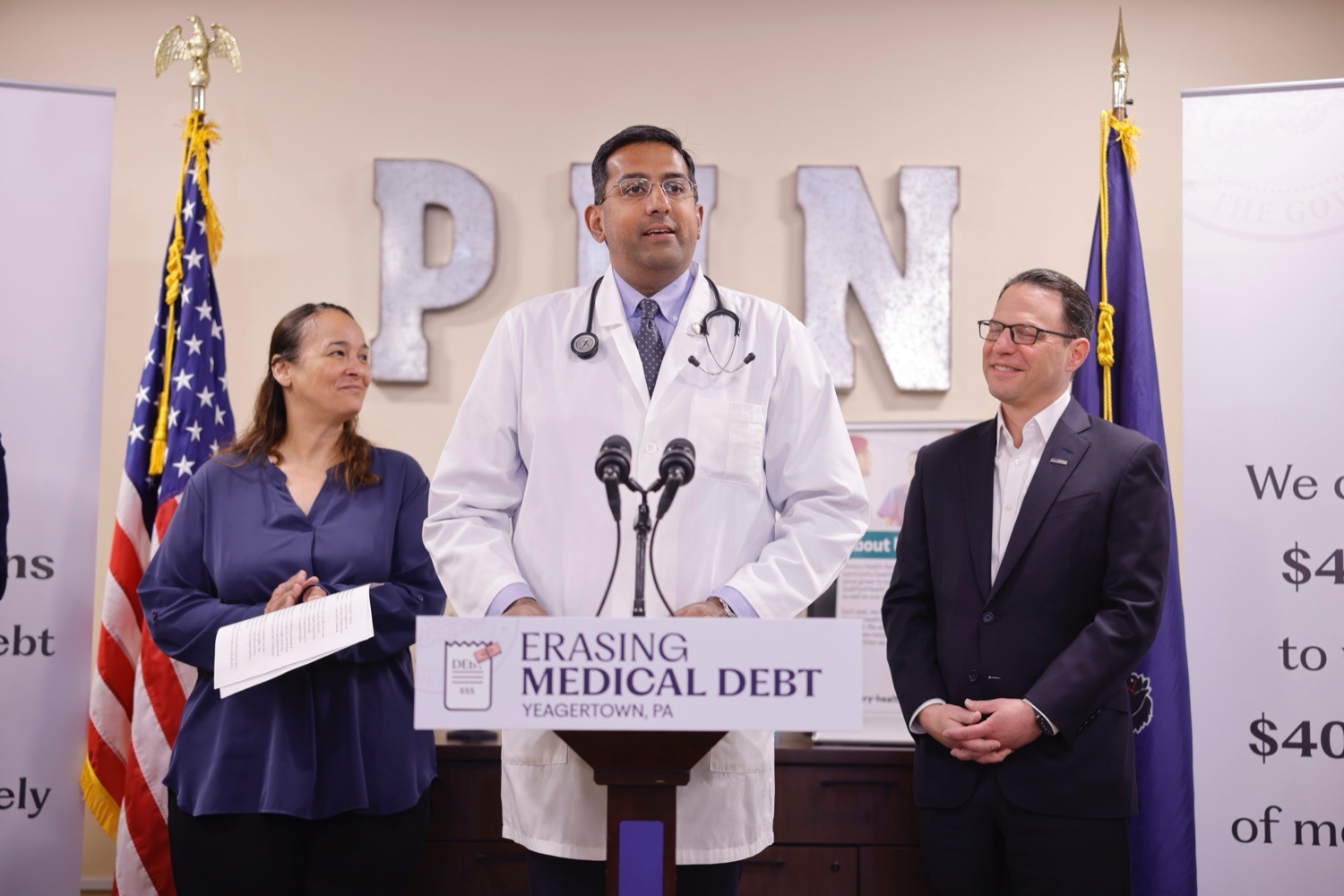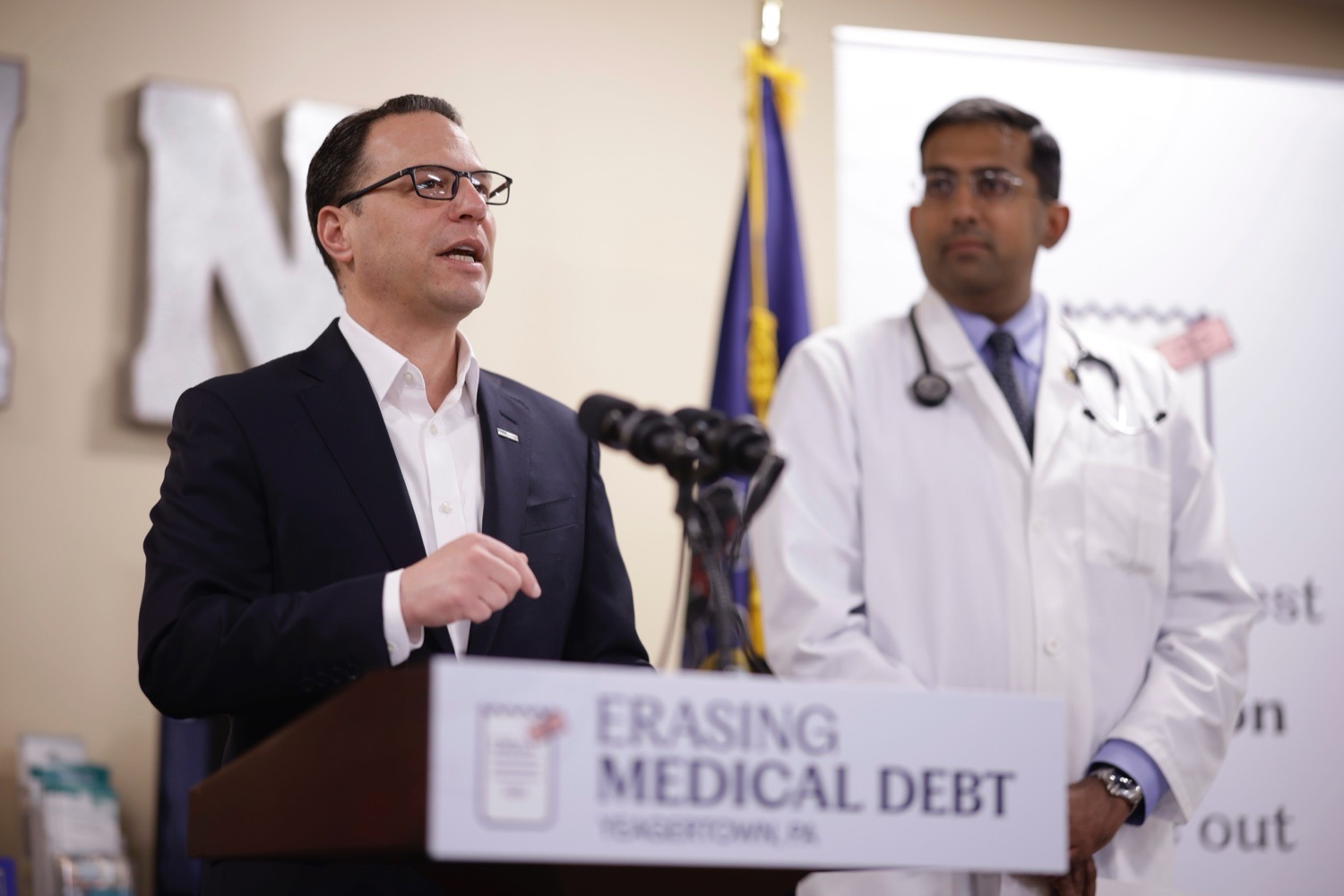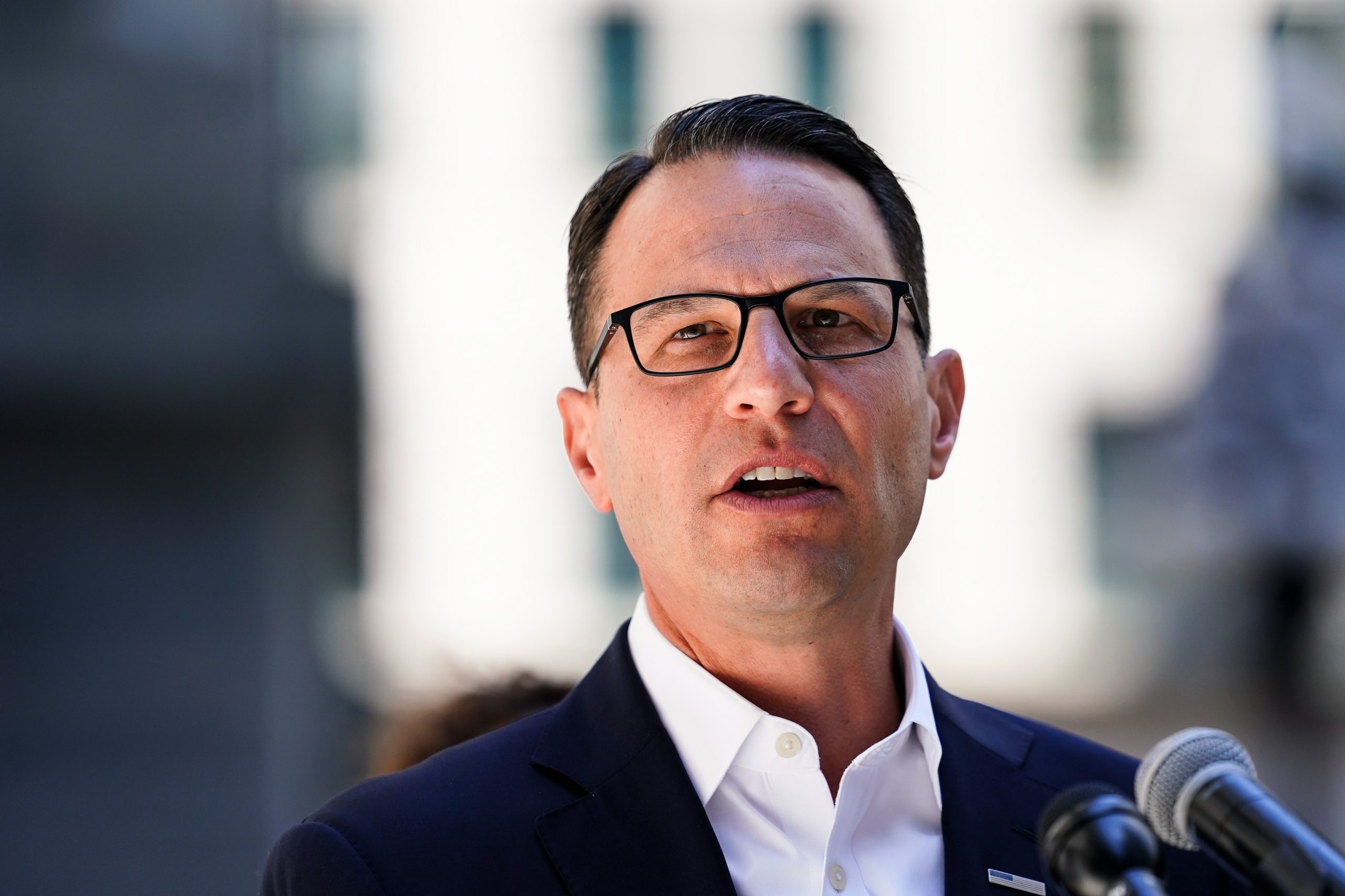Governor Josh Shapiro, Representative Arvind Venkat, and Primary Health Network CEO Dr. George Garrow convened at the Lewistown Community Health Center in Mifflin County to spotlight the proposed 2024-25 budget’s $4 million allocation, which is aimed at alleviating nearly $400 million in medical debt for Pennsylvanians.
This initiative also underscores the intention to institute more transparent healthcare practices to prevent the accumulation of medical debt.
Governor Shapiro, during his budget address, emphasized the need to support Pennsylvanians burdened by medical debt, particularly those in rural areas. Medical debt impedes access to quality healthcare and affects individuals’ credit standings.

Rep. Venkat (Credits: PAcast)
With a modest investment of $4 million, the state could alleviate approximately a quarter of all medical debt for low-income Pennsylvanians by partnering with nonprofits purchasing such debt from healthcare providers.
Rural counties, including Warren, Greene, Bradford, Franklin, and McKean, witness a disproportionate impact of medical debt, with nearly 20% of Warren County residents grappling with such financial burdens.
The Governor highlighted the feasibility of erasing $100 of medical debt for just $1 of investment due to the nature of medical debt transactions. Hospitals and healthcare providers enable Pennsylvania to erase $400 million of medical debt with a $4 million investment by selling outstanding debt to collectors at minimal rates.
Eligibility for debt relief will be based on income criteria or the amount owed relative to annual income, ensuring targeted assistance to those most in need. Qualifying Pennsylvanians will not be required to apply for relief; instead, a selected vendor will handle debt elimination and notify individuals afterward.

Governor Shapiro and Rep. Venkat (Credits: Governor Josh Shapiro)
Additionally, Governor Shapiro’s proposal advocates for transparent healthcare practices to curtail the accumulation of medical debt. Representative Arvind Venkat, an emergency physician and legislator, emphasized the significant impact of medical debt on healthcare costs and public health.
He lauded the Pennsylvania Medical Debt Relief Program as a means to provide relief, prevent debt accrual, and mitigate healthcare inflation. Dr. George Garrow of the Primary Health Network underscored the pivotal role of community health centers in providing accessible care and bridging healthcare gaps, particularly for underserved populations and rural communities.
The Governor’s initiative responds to the pressing issue of medical debt, which poses financial crises for many Pennsylvanians. By offering relief and advocating for transparent healthcare practices, the proposed budget aims to alleviate financial burdens and improve healthcare accessibility across the Commonwealth.























